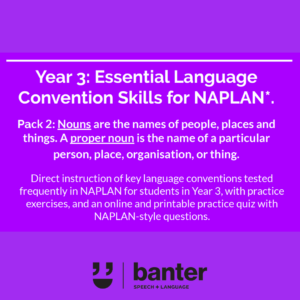(R701) NAPLAN: Year 3 – Essential Language Convention Skills for NAPLAN (Nouns and Proper Nouns)
$6.99 including GST
In this 37-page Teach-Practice-Test slide pack, we do nine key things:
Description
Pack 2. Nouns and Proper Nouns*
A noun is the name of a person, animal, plant, place or thing, like John, tiger, cactus, river and robot. Proper nouns are the names of particular people, titles, places, brands, and organisations, like Albert Einstein, Sir Lancelot, Sydney, McDonald’s and the United Nations. A proper noun starts with a capital letter.
There are 100s of NAPLAN products on the market. Most – like the ones sold in Kmart, Target and Big W – are not much more than colourful collections of test papers. Few show you how to teach the skill before practising and then finally testing it.
This one does.
In NAPLAN, Australian governments test the literacy and numeracy of Australian students, including students in Year 3. In literacy, one of the main areas tested is Language Conventions. Language Conventions include grammar, and punctuation as well as spelling.
Two Language Conventions that are tested frequently in NAPLAN are:
-
identifying nouns in sentences; and
-
knowing that a proper noun starts with a capital letter.
These sound simple. Yet, frequently, students make mistakes in questions asking them to spot or correct errors in the use of these skills.
In this 37-page Teach-Practice-Test slide pack, we do nine key things:
-
Set out the teaching goals for teachers.
-
Set out key class expectations to help children to focus.
-
Explicitly teach the skills, including the meaning of “noun”, and “proper noun”.
-
Explain and demonstrate why the skills are necessary – both for the test and (more importantly) for real life.
-
Give correct model examples, demonstrating the skills.
-
Provide non-examples: sentences with “mistakes” in them, to train students to spot errors.
-
Practice spotting and fixing errors in the use of these skills.
-
Include an online (and printable), multiple choice quiz with NAPLAN-style questions testing the skills.
-
Links to further resources and information about language conventions.
Written by Australian speech-language pathologists with a special interest in helping school-age students to thrive, this resource recognises that some students need extra help with their grammar and punctuation, including:
-
some students with developmental language and other learning disorders;
-
some students who are learning English as a second language;
-
some students who might feel a bit worried about the tests; and
-
some students from low socio-economic or high risk backgrounds who may simply not have had much exposure to printed texts and the language conventions tested in NAPLAN.
The slides do not require any prior knowledge, and are therefore suitable for people with limited technical knowledge of grammar and punctuation conventions.
We’ve worked hard to make these resources as accessible and inexpensive as possible. They can be downloaded as PDFs and Google Slides. The slides can be used one-to-one, in small groups, and in whole class instruction. We’ve also made separate packs for each key skill, so you only need to download what’s needed to help the student or students in question.
So if you need some help to get a Year 3 student ready for the Language Conventions paper in May, this is the place!
*This resource is not endorsed officially by Australian governments, and is produced by Banter Speech & Language, an independent speech-language pathology practice in Sydney, Australia.

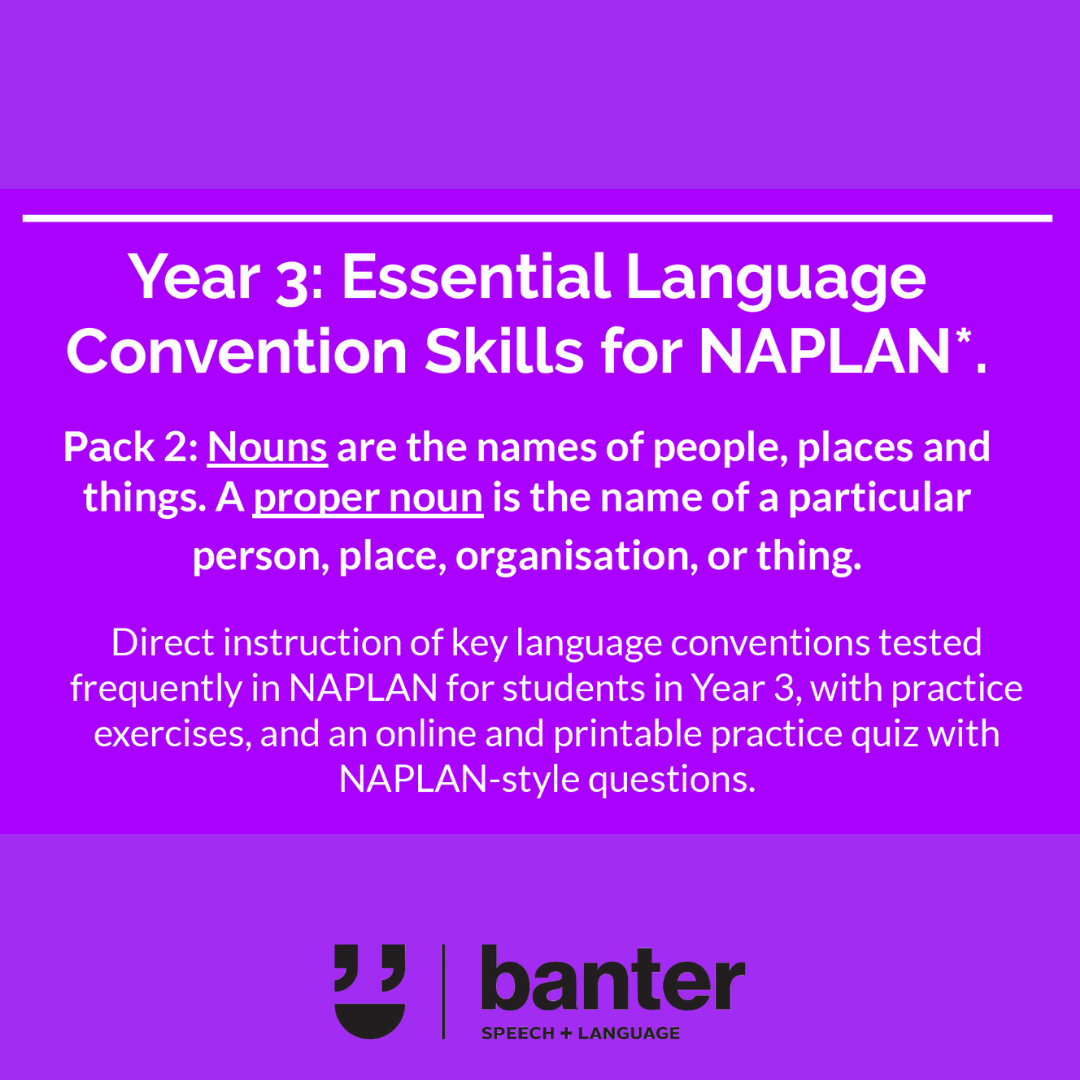






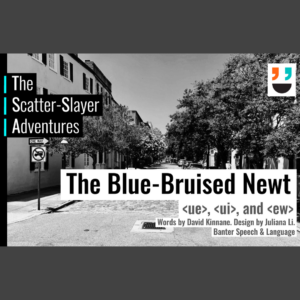

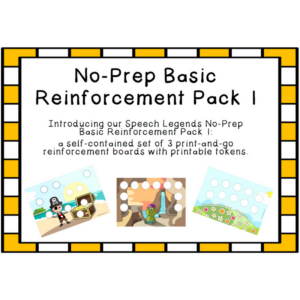 No-Prep Basic Reinforcement Pack I
No-Prep Basic Reinforcement Pack I 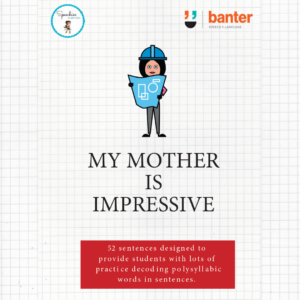 (R305) Decoding Polysyllabic Words in Sentences: My Mother Is Impressive
(R305) Decoding Polysyllabic Words in Sentences: My Mother Is Impressive  (L418) Narrative Language Workout for Young Primary Schoolers: The Dog and his Reflection, a Fable by Aesop
(L418) Narrative Language Workout for Young Primary Schoolers: The Dog and his Reflection, a Fable by Aesop 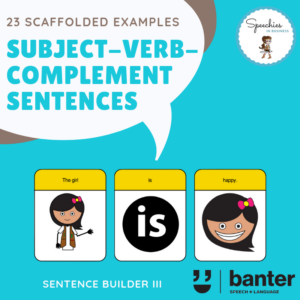 (L128) Subject-Verb-Complement (SVC) Sentence Builders
(L128) Subject-Verb-Complement (SVC) Sentence Builders 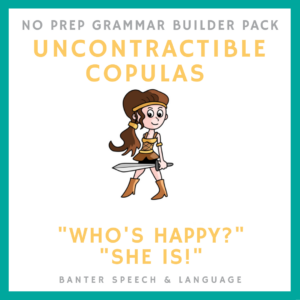 (L264) The No Prep Grammar Builder: Uncontractible Copulas (“Who’s happy?” “She is!”)
(L264) The No Prep Grammar Builder: Uncontractible Copulas (“Who’s happy?” “She is!”) 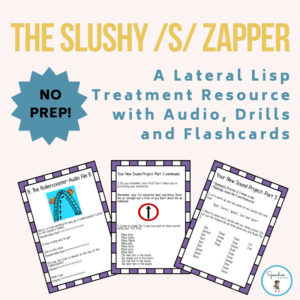 (E411) Slushy /s/ Zapper: A Lateral Lisp Treatment Resource
(E411) Slushy /s/ Zapper: A Lateral Lisp Treatment Resource  (R417) The Frightening Shy Child
(R417) The Frightening Shy Child 